
The Cheeky Monkey Media Blog
A few words from the apes, monkeys, and various primates that make up the Cheeky Monkey Super Squad.

Part 3: Alphabetic Anatomy – Teaching You Type
 November 7, 2019 / Treena Bjarnason
November 7, 2019 / Treena Bjarnason
In parts one and two, we covered the absolute basics, and we looked at what “cases” mean. Now in part three let’s look at the skeletons of a sentence. That’s right. Sentence skeletons. Now, as a belated Halloween special we’ve got a lesson to spook the pants off of you.
Just like people, letters have an anatomy to them. Legs, arms, ears, shoulders, there are all sorts of similarities. For this article, we’re going to be using the font Garamond to show all the different parts of letters. Just remember that these concepts also apply to every other font out there. Without any further rambling, here’s the anatomy of letters!

Stroke
Strokes in letters are the main diagonal lines that make up the letter.
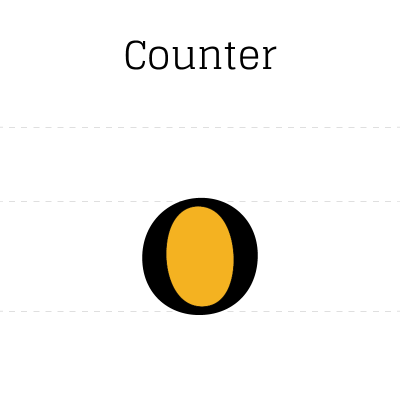
Counter
The completely enclosed space on the inside of a letter.

Loop
A loop is a counter which is connected to a letter but not part of the main body.
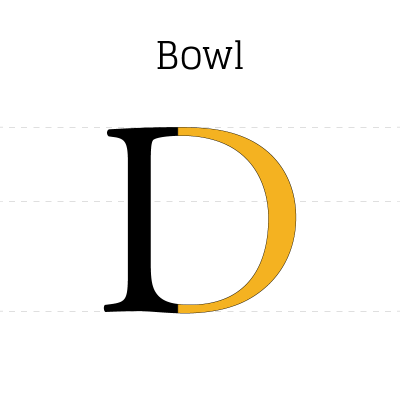
Bowl
Bowls are the strokes that create the enclosed spaces called counters.

Tail
The (usually curved) descender on the capital letters K, R, and Q. Occassionaly the descenders of some lowercase letters are also referred to as tails (such as in q, j, p, g, or y).
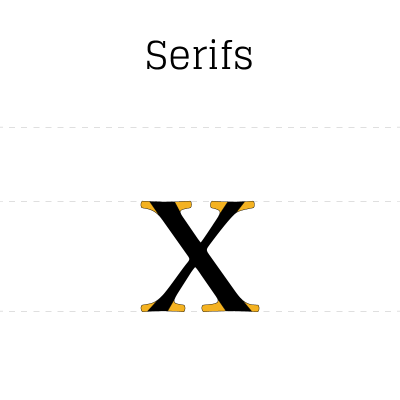
Serifs
The decorative elements on the ends of strokes. These can vary in thickness or style. In the case of sans-serif fonts, they are completely excluded.

Spine
Just like your own back, a spine is the main structural curve of the letter S.

Link
The small stroke connects the two parts of a double-story letter.
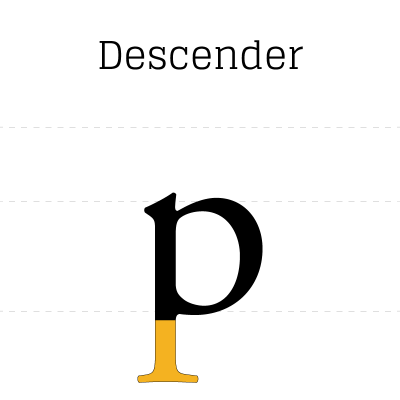
Descender
Descenders are the parts of letters that extend below the baseline.
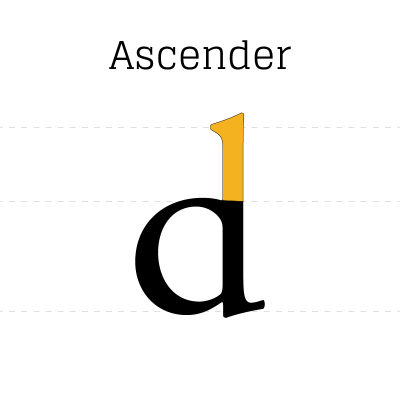
Ascender
The opposite of descenders, ascenders are the parts of letters that extend above the cap height.

Spur
See that little sticky-outy bit at the bottom on the front G there? That’s called a spur.
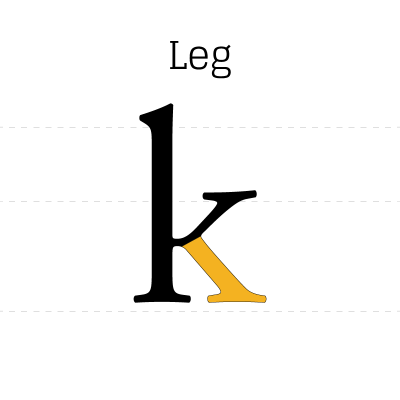
Leg
A leg is a part of a letter that’s connected at one end and extends downward to a terminal or serif.
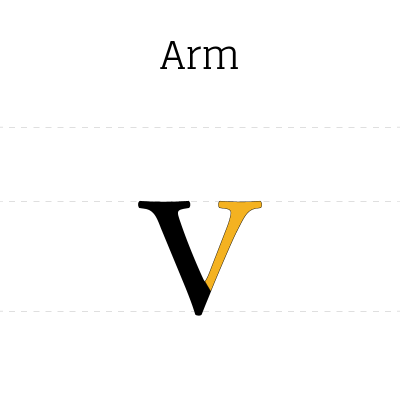
Arm
In typography, arms are just like legs, except they extend upwards rather than downwards.

Ear
Occasionally the lowercase g will have a small decorative stroke on the top right called an ear.

Shoulder
The curved part of a stroke in letters like m, n, or h.

Terminal
When a stroke ends without a serif, that part is called a terminal.
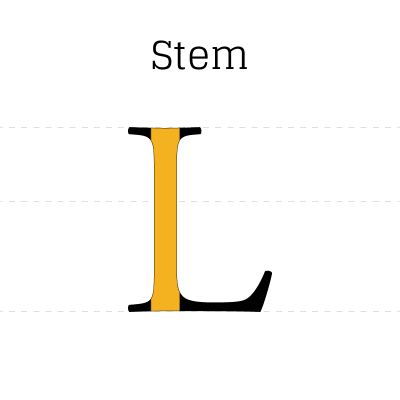
Stem
The main upright vertical stroke in a letter, or the first diagonal stroke in letters with non-vertical strokes, is the stem.

Bar
A horizontal stroke is called a bar. Occasionally a crossbar will also be called a bar.
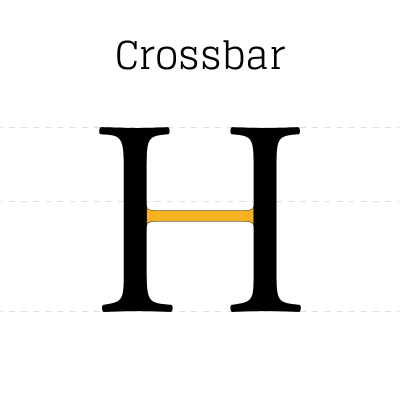
Crossbar
The horizontal stroke connects two other strokes.
Challenge Time:
Now that you’ve studied all the different parts of letters, here’s a challenge for you! Below is an image of all the letter parts we covered in this article. How many can you name without having to scroll back up and double-check? Reach out to us on social media and let us know how you did!
